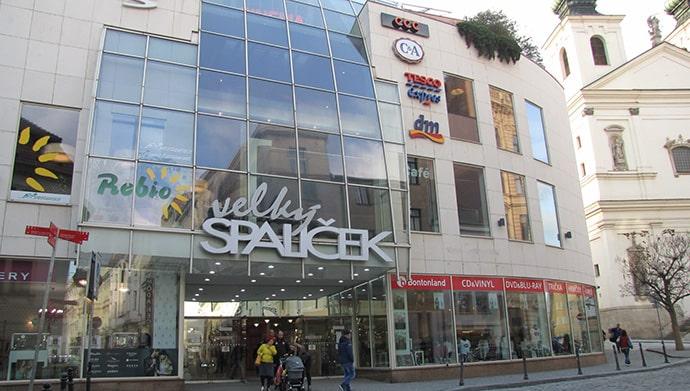Brno Diocese invests CZK 2.5 billion in real estate and infrastructure to secure financial future
The Brno Diocese is ramping up its real estate investments, channeling nearly CZK 2.5 billion in 2023 as it prepares for a future without state funding. Facing a gradual reduction in government financial support, the diocese is turning to property development as a key strategy for long-term financial independence. Through its companies, the diocese currently manages the Velký Špalíček department store in central Brno and is constructing production and storage halls in Mikulov, located in the Břeclav region, near the D1 and D2 motorways. Church officials shared the plans with reporters today.
The diocese’s financial turnover, which includes its charitable organizations, schools, and parishes, totals CZK 2.467 billion. The financial outlook is currently in the black, with the diocese receiving CZK 93 million from the state last year for operational purposes.
By 2030, state contributions for operations will cease, and by 2043, restitution payments for property not returned to the church during post-communist settlements will end as well. To ensure financial sustainability, the diocese is focusing on self-management through investments in real estate, stocks, bonds, and business ventures—marking a shift in both strategy and mindset for clergy and parishioners alike.
“I’m not aiming to make the diocese rich, but to ensure it functions effectively,” said Bishop Pavel Konzbul. Unlike other dioceses that received significant forest lands through restitution, Brno received fewer natural resources and has instead focused on diversifying its economic activities.
One of its major real estate ventures is the acquisition of the Velký Špalíček department store, which the church purchased from a private investor. The diocesan real estate company, Urbanon, is also exploring retail projects on church-owned land in rural areas, potentially leasing these developments to retail chains.
In Brno’s city center, Urbanon is spearheading the construction of the Augustin House dormitory on Jaselská Street, although progress has been slowed by a court decision that overturned one of the four building permits. Securing work continues, but full construction is delayed. Additionally, the company is working on transforming the former Voršilek convent and connecting it to Novobranská Street and Roman Square.
“We aim to invest the compensation funds ethically, focusing on diversification in three main areas: industrial, residential, and retail projects,” explained Petr Prokš, chairman of Urbanon’s board.
Looking ahead, the church continues to expect financial support from congregants, donors, and sponsors. “The church has never solely relied on donations but has always engaged in economic activities,” noted Vicar General Pavel Kafka. The diocese also plans to continue utilizing grants from local, state, and other funding sources for the maintenance of monuments, and the operation of schools and social services.
In education, the diocese is investing in expanding school facilities. New vocational classrooms are being constructed at the Bishop’s Grammar School on Barvičov Street in Brno, with plans to increase the capacity of the associated kindergarten. The project’s estimated cost exceeds CZK 100 million.
Source: CTK
Photo: CBRE









